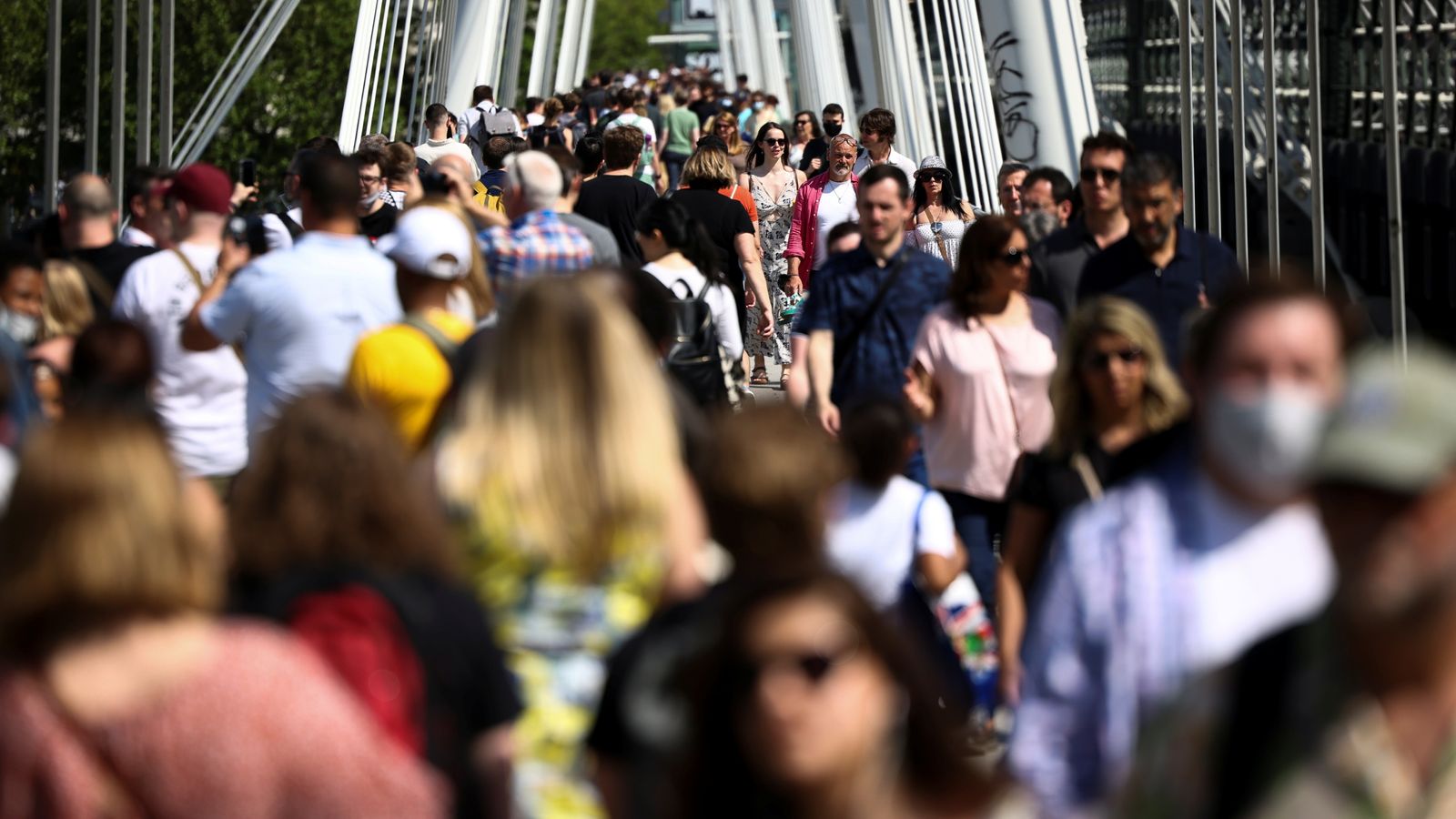Coronavirus infection rates have risen sharply across the UK – with England, Scotland and Wales all recording their highest in more than four months, according to latest estimates.
Scotland now has the highest of all the home nations – with around one in 100 people in private households having COVID-19 in the week to 3 July, says the Office for National Statistics (ONS).
That’s up from one in 150 the previous week and the highest since 16 January.
In England, around one in 160 people had COVID during that timeframe – up from one in 260 in the previous week.
This is the highest level since the week to 19 February.
And in Wales it was one in 340 – up from one in 450 and the highest level since the week to 27 February.
In Northern Ireland, the estimate is one in 300 people – up from one in 670 and the highest since 3 April.
The ONS data, which does not cover care homes and hospitals, is based on swab tests from thousands of people regardless of whether or not they have symptoms.
The estimates published by the ONS will be studied carefully by Boris Johnson as he prepares to confirm whether the remaining COVID restrictions in England will be lifted.
This plan to ease the rules further us expected to accelerate the rapid spread of the Delta variant, which is already causing a noticeable uptick in infections.
Rules around face masks and social distancing are expected to be dropped, as well as limits on hospitality and guidance on working from home, from 19 July.
More than 100 scientists have condemned the government’s plans to abandon coronavirus restrictions – describing it as a “dangerous and unethical experiment” in a letter published in The Lancet this week.
They warned the exponential growth of COVID-19 “will likely continue until millions more are infected, leaving hundreds of thousands with long-term illness and disability” and that the strategy risks “the emergence of vaccine-resistant variants”.






















